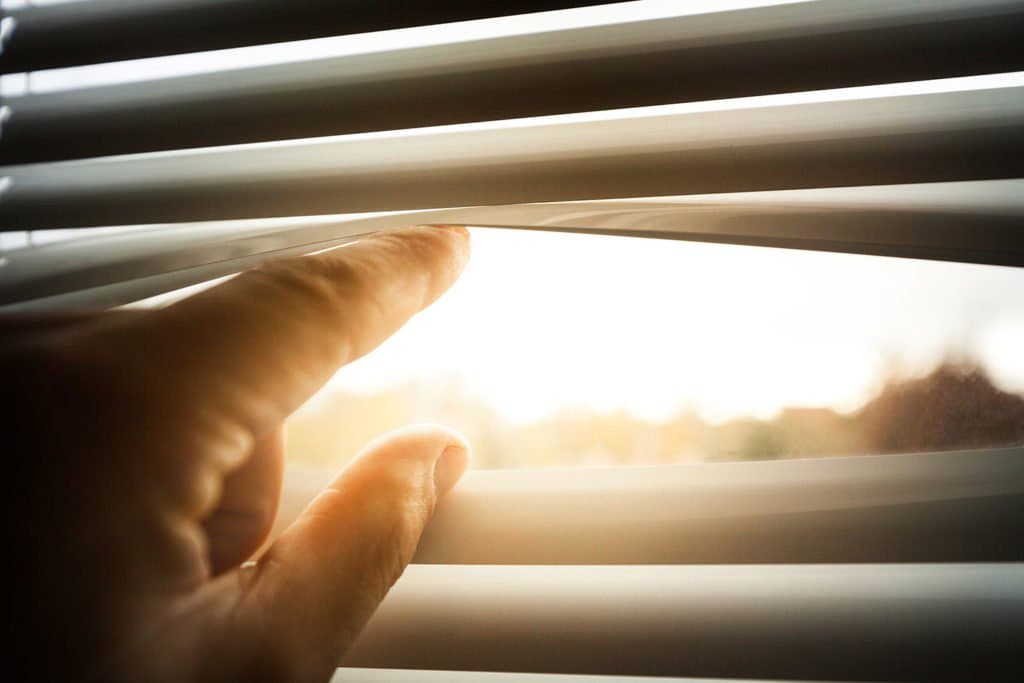
We all have morning people in our lives — as soon as the sun peeks over the horizon, they hop out of bed and feel mostly happy to be awake. It may seem like thriving in the morning has few downsides, but a new study suggests a surprising link between being a morning person and developing anorexia. (1)
Studies have shown links between “night people” and various health issues like depression and heart disease. (1) (2) In this study, however, researchers from around the world studied genetic ties between sleep and anorexia.
This study looked at almost 17,000 anorexia cases and over 50,000 controls (cases with no anorexia for comparison). In the anorexia group, most subjects were female, but the control group had an almost 50 percent split between gender, and all subjects across the board were of European descent.
After adjusting for other factors, the researchers found that anorexia nervosa was more common in people with a morning chronotype, and morning people had a higher risk of developing the eating disorder. They also found those with insomnia carried a higher risk of anorexia, but that link didn’t go both ways.
Beyond chronotype, the researchers tested anorexia against daytime napping, daytime sleepiness, and how long people slept nightly, but they didn’t show any correlation. Although this study showed a clear link between sleep and anorexia, it didn’t prove a cause. Let’s take a closer look at anorexia and how your sleep might affect how you eat.
P.S.: Take our Chronotype Quiz to find out if you’re a lark or a night owl.
What is Anorexia?
Anorexia nervosa is an eating disorder that causes miniscule food consumption, severe weight loss, and a deep fear of gaining weight. (1) This disorder shows up three times more often in females than in males and usually starts in late adolescence or early adulthood. (5) (6)
Current risk factors for anorexia include being female, mood disorders, and obesity as a child, and this study suggests experts may soon need to add having a morning chronotype to this list, but it’s a bit too soon to say for sure. (6)
All About Morningness
Morning people like to wake up early and be at their most active in the early hours of the day. They also may be ready for bed earlier than their night-owl counterparts, who like to stay up and sleep late. (7)
How Common is Morningness?
Not everyone falls into the morningness and eveningness categories. One study found that about a third of their participants identified as either larks or night owls, while the majority said they were neither. (8) Out of all the chronotypes, though, eveningness was the most common.
The Genetics of Chronotype
Why does this matter? Well, you may want to know if you can lower this risk factor, or if you’re stuck with it. Experts say you only inherit your chronotype through your genes about 50 percent of the time, so it’s not all out of your hands. (9)
Sometimes genetic mutations (changes) can push you towards a certain chronotype. (7) Genetics aside, almost all children have early chronotypes (keep nodding, parents) but as kids reach their teen years, they tend to shift to eveningness. (7)
Circadian Rhythm Has a Say
Your circadian rhythm is an internal clock that keeps track of your 24-hour day. It tells you when it’s time to wake up and get active and when it’s time to wind down for sleep. (7) Here’s the kicker: not everyone’s circadian rhythm follows a precise 24-hour rule. Morning people may have a shorter circadian cycle than night people, which wakes you up earlier than your night-owl friends. (7)
Circadian Rhythm and Eating Habits
Your internal clock has forever linked arms with eating habits and they can each affect the other. (1) “Our circadian rhythm gets input from not only the light that we’re exposed to but also what we’re doing during the day,” says Dr. Audrey Wells, MD, sleep expert and founder of Super Sleep MD, who adds your meals and their timing influence how much we’re awake and the quality of our waking hours.
“People who have anorexia nervosa tend not to sleep as well,” says Wells. Why? You don’t just have one internal clock–you have what are called peripheral clocks in your liver, gut…any cells with a nucleus (cell control centers), and when these clocks get off-kilter, says Wells, the way your body processes nutrients can get chaotic and inefficient.
Going the other way, when you don’t eat a healthy amount throughout the day, you can confuse your circadian rhythm, which is in part directed by your metabolism (how your body breaks down food). (10) In fact, people with anorexia sometimes wake up much earlier than they’d like (called early morning awakening insomnia), which shows their sleep-wake cycles have gotten disrupted. (1)
What This Means for You
These study authors found a link between morningness and anorexia, but not a firm cause. Translation? Don’t worry too much about the connection. After more studies confirm what they found, being a morning person might get added to the anorexia risk list, but for now, they don’t have firm recommendations.
If you feel you may have an eating disorder, it’s important to let your healthcare provider know as soon as possible. If you want to talk to a non-medical person first, you have plenty of resources to choose from:
- National Eating Disorders Association
- National Association of Anorexia Nervosa and Associated Disorders
- Project Heal
- National Alliance for Eating Disorders
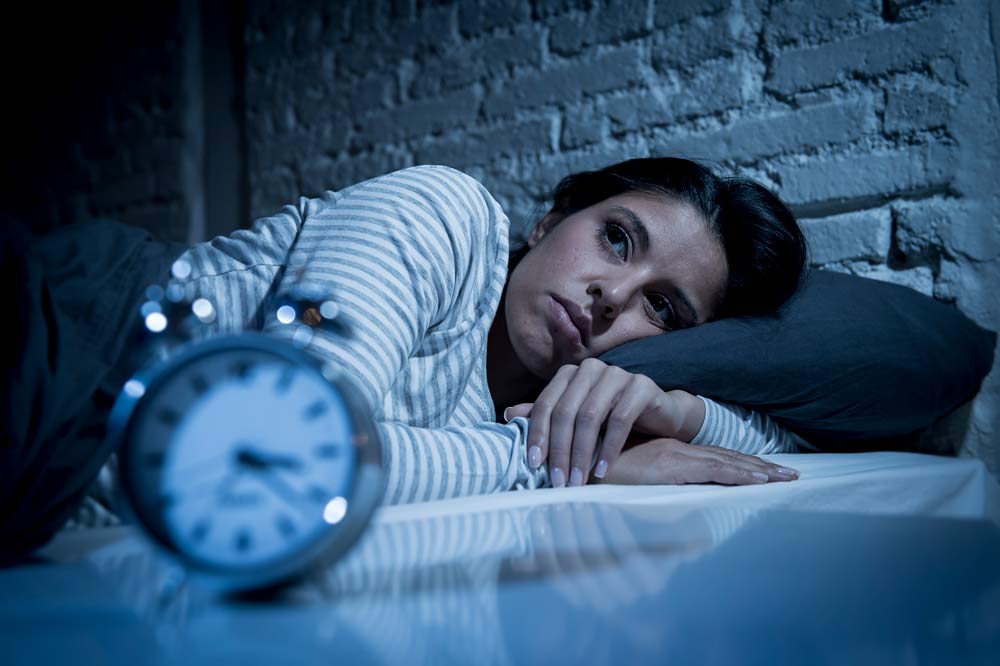
Types of Insomnia — Causes and Treatments
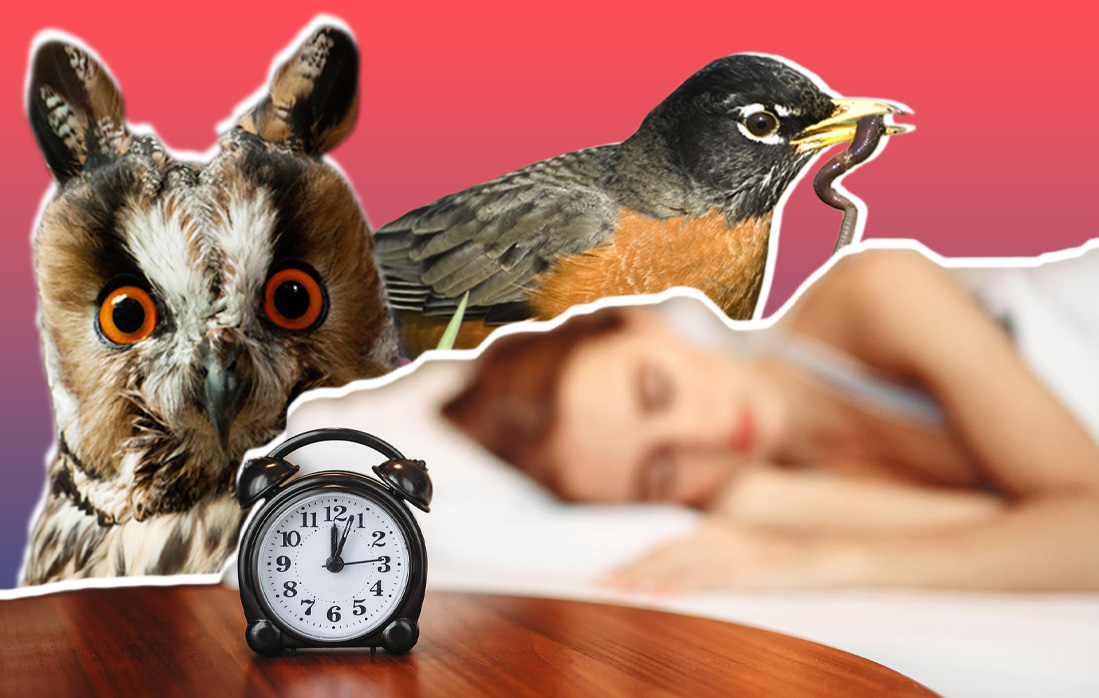
Can You Become a Morning or Night Person? Experts Weigh In.
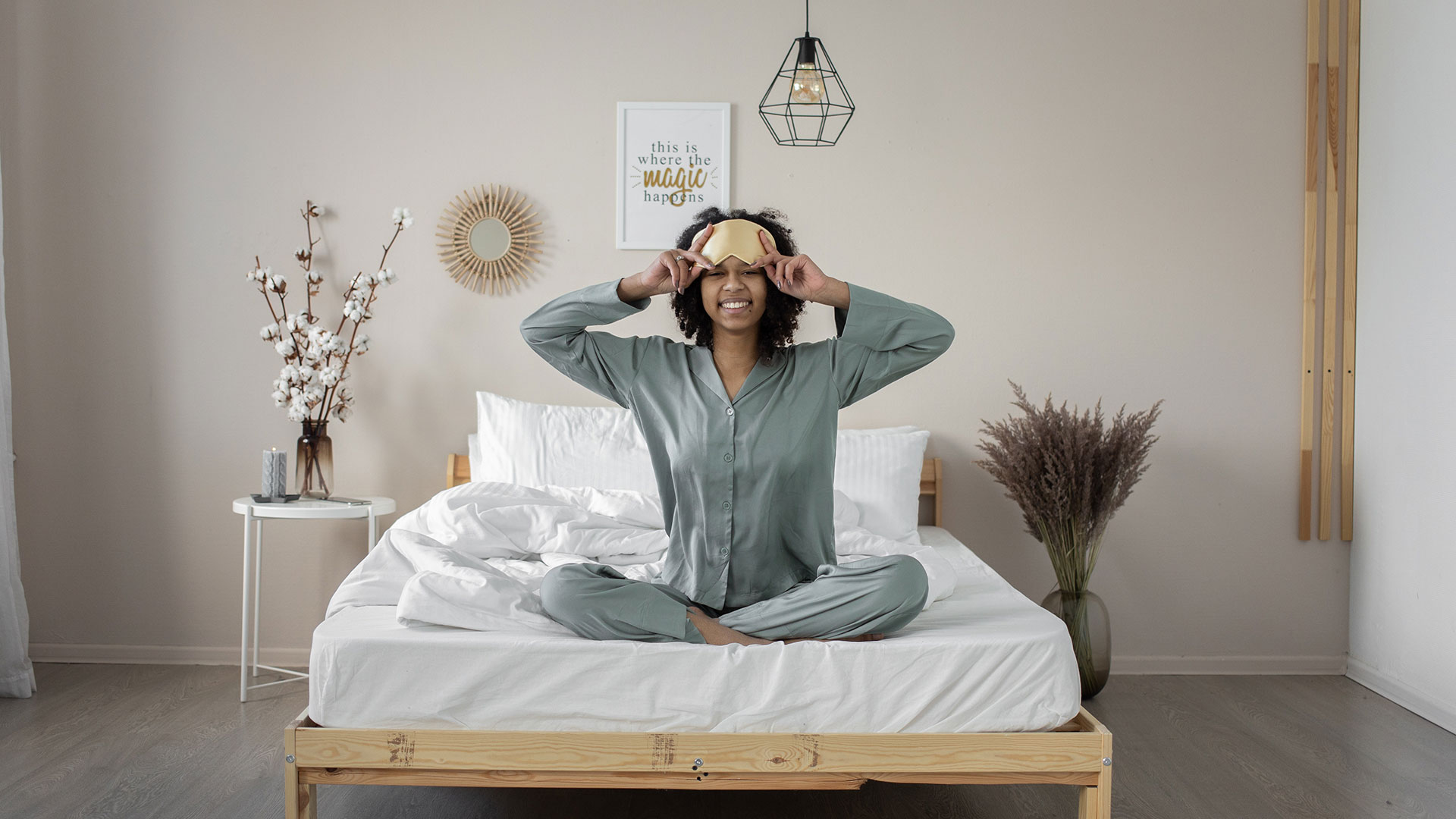
Do Night Owls Have More Serious Health Risks Than Early Birds? Experts Weigh In On New Study
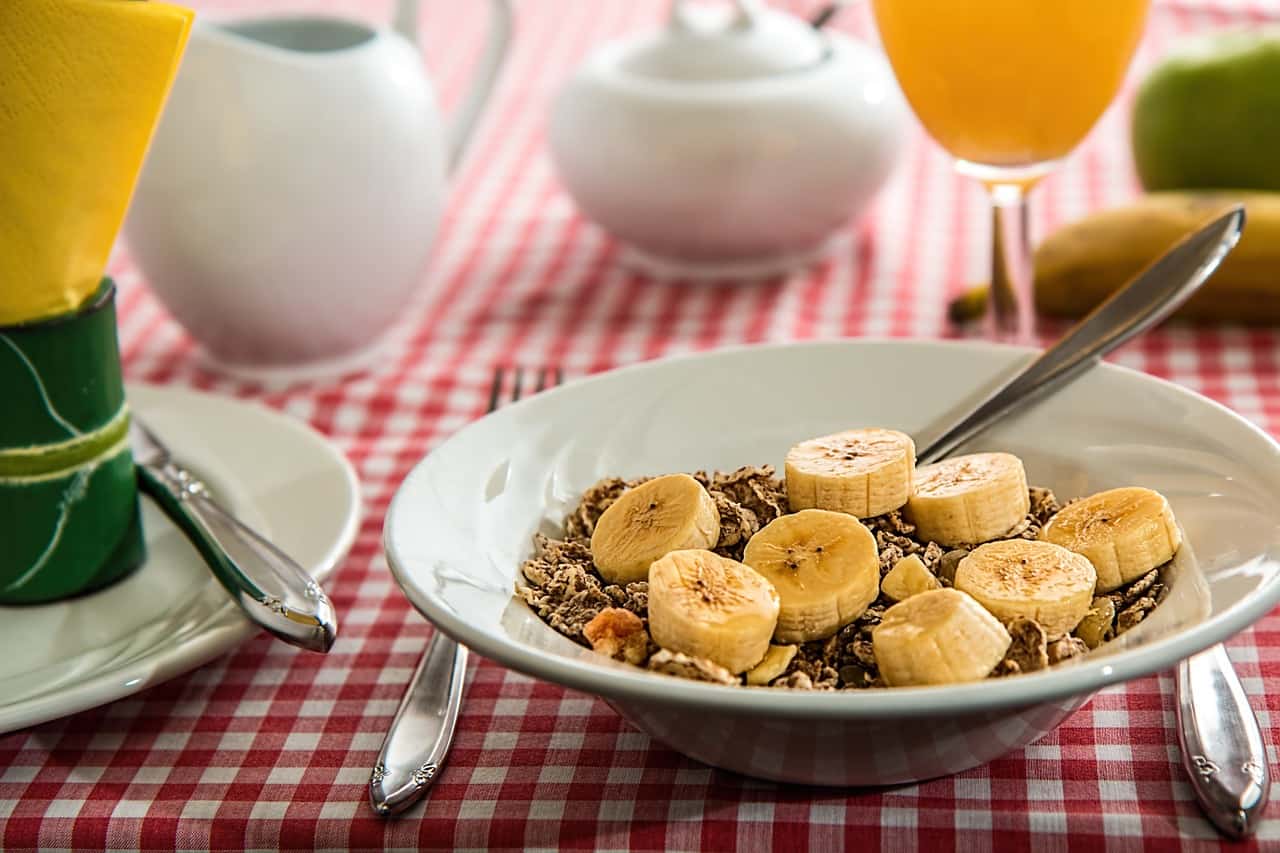
10 Snacks That Can Promote Great Sleep
Sources
1. Wilcox H, Paz V, Saxena R, Winkelman JW, Garfield V, Dashti HS. The Role of Circadian Rhythms and Sleep in Anorexia Nervosa. JAMA Network Open. 2024;7(1):e2350358. doi:10.1001/jamanetworkopen.2023.50358
2. Baldanzi G, Hammar U, Fall T, et al. Evening chronotype is associated with elevated biomarkers of cardiometabolic risk in the EpiHealth cohort: a cross-sectional study. Sleep. 2022;45(2):zsab226. doi:10.1093/sleep/zsab226
3. Raman S, Coogan AN. Chapter 47 – Closing the Loop Between Circadian Rhythms, Sleep, and Attention Deficit Hyperactivity Disorder. In: Dringenberg HC, ed. Handbook of Behavioral Neuroscience. Vol 30. Handbook of Sleep Research. Elsevier; 2019:707-716. doi:10.1016/B978-0-12-813743-7.00047-5
4. Hasan MM, Jankowski KS, Khan MHA. Morningness-eveningness preference and shift in chronotype during COVID-19 as predictors of mood and well-being in university students. Personality and Individual Differences. 2022;191:111581. doi:10.1016/j.paid.2022.111581
5. Eating Disorders – National Institute of Mental Health (NIMH). Accessed January 14, 2024. https://www.nimh.nih.gov/health/statistics/eating-disorders
6. Moore CA, Bokor BR. Anorexia Nervosa. In: StatPearls. StatPearls Publishing; 2023. Accessed January 14, 2024. http://www.ncbi.nlm.nih.gov/books/NBK459148/
7. Zou H, Zhou H, Yan R, Yao Z, Lu Q. Chronotype, circadian rhythm, and psychiatric disorders: Recent evidence and potential mechanisms. Frontiers in Neuroscience. 2022;16. Accessed January 14, 2024. https://www.frontiersin.org/articles/10.3389/fnins.2022.811771
8. Putilov AA, Sveshnikov DS, Puchkova AN, et al. Single-Item Chronotyping (SIC), a method to self-assess diurnal types by using 6 simple charts. Personality and Individual Differences. 2021;168:110353. doi:10.1016/j.paid.2020.110353
9. Heimola M, Paulanto K, Alakuijala A, et al. Chronotype as self-regulation: morning preference is associated with better working memory strategy independent of sleep. SLEEP Advances. 2021;2(1):zpab016. doi:10.1093/sleepadvances/zpab016
10. Feeding and Eating Disorders in the Context of Circadian Rhythms – PMC. Accessed January 14, 2024. https://www.ncbi.nlm.nih.gov/pmc/articles/PMC9685668/
11. Wells, Audrey, MD. Author interview. January 16, 2024.